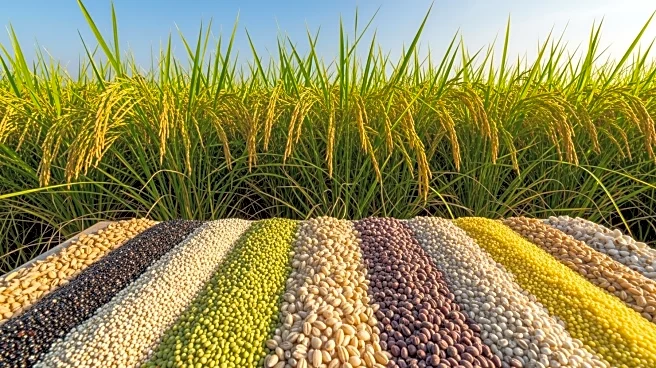What is the story about?
What's Happening?
Rice cultivation is a significant contributor to climate change due to methane emissions from wet farming practices. To address this, several sustainable alternatives and practices are being proposed, including alternate wetting and drying, mid-season drainage, and direct seeding. These methods aim to reduce methane emissions and improve the environmental footprint of rice farming. Additionally, various grains such as amaranth, millet, sorghum, quinoa, teff, farro, buckwheat, bulgur, and fonio are suggested as low-carbon alternatives to rice.
Why It's Important?
Reducing emissions from rice cultivation is crucial for mitigating climate change impacts, as agriculture is a significant source of greenhouse gases. By adopting sustainable practices and exploring alternative grains, the agricultural sector can lower its carbon footprint and contribute to global climate goals. These changes can also promote biodiversity and soil health, offering long-term benefits to farmers and consumers. The shift towards sustainable rice alternatives aligns with broader efforts to create a more resilient and environmentally friendly food system.
What's Next?
The adoption of sustainable rice farming practices and alternative grains may require policy support and incentives to encourage farmers to transition. Research and development in agricultural technologies could further enhance the efficiency and effectiveness of these practices. Consumer education and awareness campaigns may also play a role in increasing demand for sustainable food options. Collaboration between governments, industry, and civil society will be essential to drive these changes and achieve meaningful reductions in agricultural emissions.
Beyond the Headlines
The move towards sustainable rice alternatives highlights the intersection of food security, environmental sustainability, and economic development. It raises questions about the accessibility and affordability of alternative grains for diverse populations. The transition may also impact cultural food practices, as rice is a staple in many diets worldwide. Addressing these challenges will require a holistic approach that considers social, economic, and environmental dimensions.















